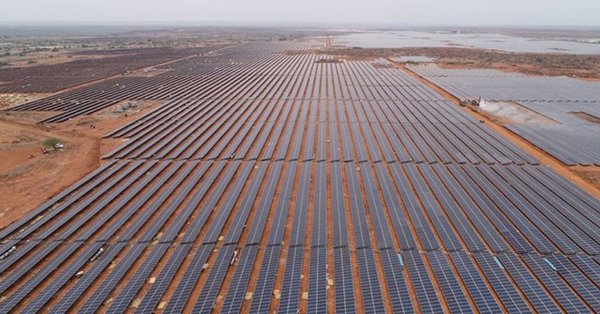Tariffs below Rs 2.55/kWh are financially unviable in the Indian solar sector under current market conditions—according to an analysis jointly undertaken by the U.S.-based Institute for Energy Economics and Financial Analysis (Ieefa) and JMK Research & Analytics.
The analysis found India’s solar tariffs have stabilised at Rs 2.50-2.87/kWh, 20-30% below the cost of existing thermal power in India, and up to half the price of new coal-fired power.
“While this rate is very competitive compared to thermal plant tariffs, and lucrative for power distribution companies entering long term power purchase agreements, this is a floor for developers if they want to make money,” said co-author Vibhuti Garg, an Ieefaenergy economist, in a report on the findings.
“Developers have already reduced their return expectations from 14% to 12%, with tariffs being achieved as low as Rs2.5/kWh.”
Garg added developers must be mindful of all the parameters impacting tariffs when bidding.
Guiding factors
The Ieefa-JMK Research study compared domestic tariffs and the conditions enabling project returns, with the results juxtaposed against solar developer expectations.
Co-author Jyoti Gulia of JMK Research said conditions in India are very different to other energy markets, adding that interest rates, module costs, and capacity utilisation factors in particular have a major impact on solar tariffs and project returns.
“The cost of financing is a big element in determining tariffs and returns. Significantly higher interest rates in India compared to other leading renewable energy countries is one of the reasons for higher domestic tariffs. The zero indexation for the 25 year period is also a key value for India that is not explicit in the year 1 tariff,” Gulia said.
“The landed cost of imported modules at a time of currency devaluation is also adversely affecting tariffs, however this might be compensated with the falling module prices.
“Finally, capacity utilisation factors (CUF) differ across states in India, given significantly different solar resource qualities. Any drop in utilisation rates has a significant impact on project returns. As per our report findings, a 3% drop in CUF results in over 7% fall in equity returns.”
The authors found the Solar Energy Corporation of India (SECI) and NTPC played a key role in building international investor interest. Contractual certainty is in place with counter party and payment risk assurance from these central government agencies.
However, “To earn reasonable returns on project investments, it is crucial for project developers to factor in the risks and rightfully estimate the costs of every component,” said Garg.
The Ieefa-JMK Research findings are published in a report titled ‘Developers and Global Investors Snap Up India’s Solar Power Tenders: Decoding Tariffs vs Returns for Solar Projects in India.’






